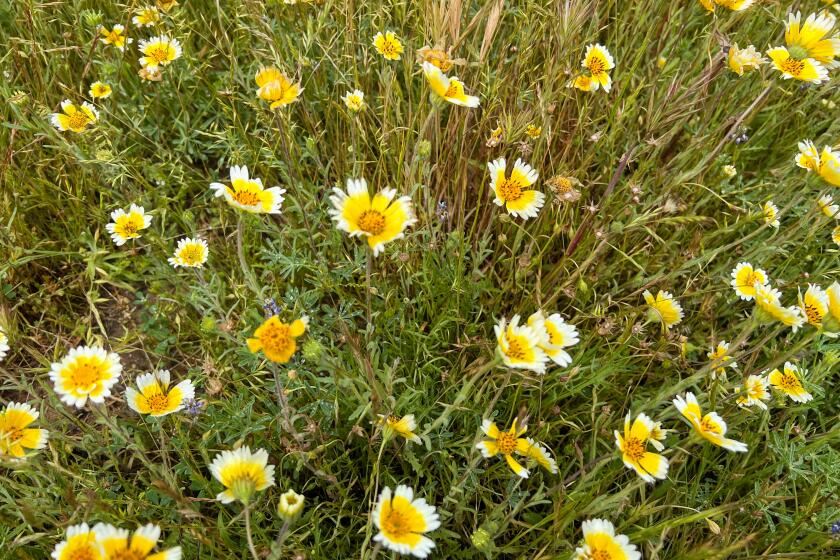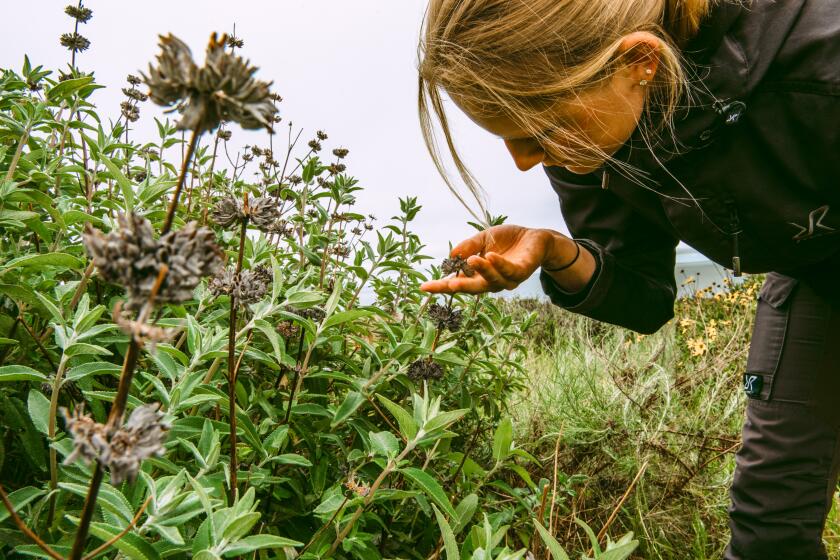Some plants thrive on gray water, study says
Many plants used for landscaping benefit from being watered with household gray water, according to a study released Monday by the nonprofit organization Water Environmental Research Foundation. The study looked at seven homes in California, Arizona, Colorado and Texas with new and longstanding gray-water systems that recycle waste water from sinks, washing machines and showers for use irrigating outdoor plants.
Although soil irrigated with gray water showed higher levels of surfactant cleaners, antimicrobials and sodium compared with areas irrigated with fresh water, the study found that the nitrogen present in gray water helped plant growth and could potentially reduce or eliminate the need for additional fertilizers.
Just three of the 22 plant species tested showed negative responses to gray water irrigation even after five years of exposure. Avocado, lemon and scotch pine trees responded poorly to salts present in some cleaners. Bermuda grass, peach trees and black-eyed Susans were among the species that did the best when fed with gray water.
The types of cleaners used in the household graywater systems studied were not disclosed, but Greywater Action cited two ingredients to avoid: salts and boron. Information on cleaning product ingredients can be found through the Environmental Working Group’s Guide to Healthy Cleaning and the American Cleaning Institute.
“Gray water can be successfully used with the right plant choices,” said Carrie Capuco, communications director for study author, the Water Environment Research Foundation in Alexandria, Va. The gray water study is the third WERF has conducted since summer 2011. Two studies have looked at household plumbing and strategies for reducing municipalities’ burden of waste-water treatment and aging infrastructure.
“There are some guidelines for best handling practices, such as heavily mulching the area where gray water is supplied to minimize contact with pets, but essentially, the result is it’s successful and can be marketed on a larger scale if the market existed,” Capuco said.
The most recent WERF gray-water study was partially funded by the Los Angeles County Department of Public Works as well as the American Cleaning Institute, a trade group for U.S. cleaning-product manufacturers.
“Graywater is being used more and more, so there are more questions about its safety in terms of human and pet health and also what it does to soil chemistry,” said Kathleen Stanton, director of technical and regulatory affairs for the American Cleaning Institute in Washington. “What we’ve found in the studies we’ve done over the last five years is that it really doesn’t affect that many plants if it’s done properly.”
ALSO:
Water-efficient home in L.A.’s Mount Washington
After two years of eco-living, what works and what doesn’t
Gray water: From the washer to the garden



